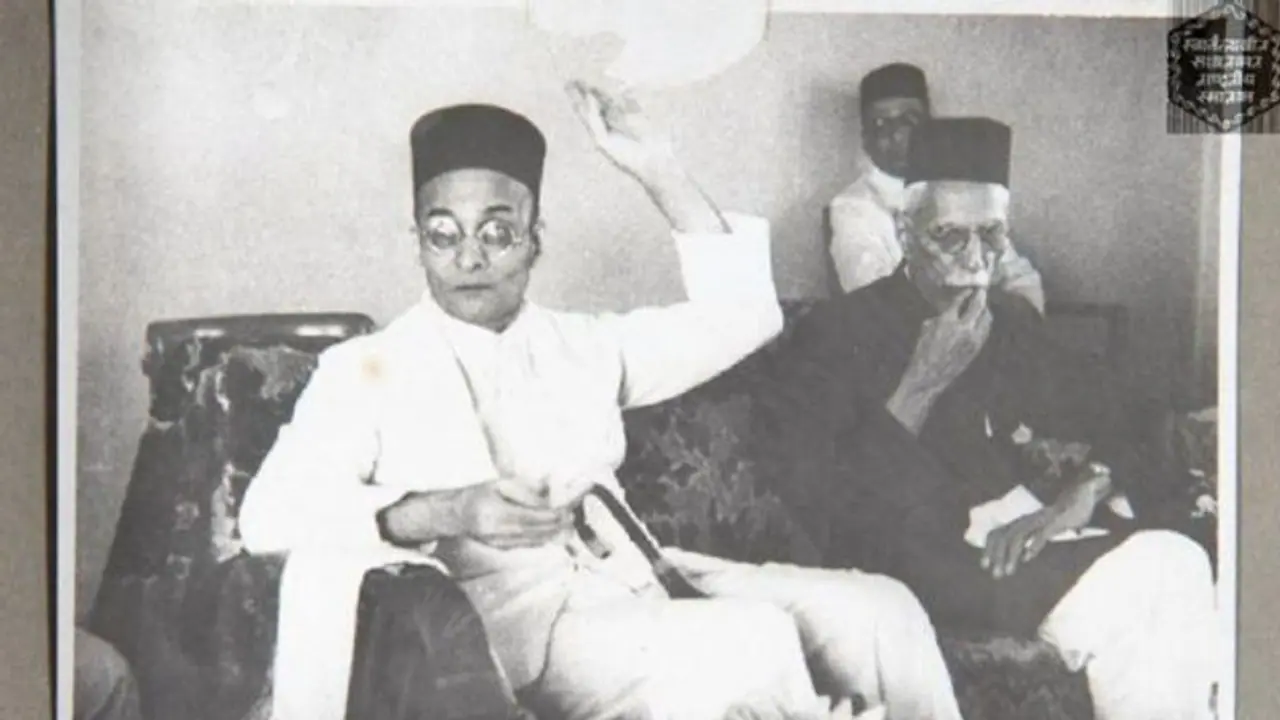Vinayak Damodar Savarkar was always a misunderstood rebel whose name has been skipped in the pages of history due to nasty propaganda
I was 21 when I was first introduced to Veer Savarkar. As a young management trainee in Paris trying to make a mark in my professional life, I felt that I was going farther away from my roots. I was searching a connect, and that’s when I came across the brilliance of Veer Savarkar. While every other history book is busy capturing the lives of Nehru and Gandhi, Savarkar has always been ignored by historians and if at all he does get some attention: it is negative. Somehow, Savarkar was never relooked from a modern perspective as all other freedom fighters of the day. Yesterday was his Punyatithi and so I want all of us to revisit the legacy of Savarkar.
Let us not forget that he was the one who formed the revolutionary secret society: Mitra Mela which was renamed as Abhinav Bharat Society in the early 1900s. He demanded for complete independence from the British, a thought that was not yet conceived then. He was also the central figure to start the revolutionary movement in London, where he gathered people to fight for India’s independence. We should never forget the harsh treatment meted out to him in the cellular jail of Andaman for 11 long years! He got only a conditional release and was confined to Ratnagiri for a significant part of his life! Criticising is a straightforward task, but one should delve in deeper before coming to any conclusions!
Savarkar was a voracious reader who was well-versed with almost all of the philosophers of the West. He, in fact, would even translate revolutionary literature from English to Marathi so that his peers could be inspired from it. Lest we forget, he lost many family members during his tenure in jail. He had to stay away from his wife and children as they were shunned by society owing to his arrest.
I don’t think many of us know that it was Savarkar who first called the Sepoy mutiny during the first war of Indian independence. He was the one responsible for creating the intellectual corpus for the freedom struggle. He was inspired by the revolutionary movements of Italy, France, Ireland etc. He would translate all these works in London and send them to India to be shared widely. In fact, even Bhagat Singh lauded his work and was inspired by him. He would also make Savarkar’s biography by Chitragupta a mandatory reading for all those who would want to be part of Hindustan Socialist Republican Association (HSRA). In fact, this book became the ground norm for some of the founders of the Indian National Congress!
Also read: Corporate Tax Cuts won’t work: It is time to make income up to Rs 12 lakh per annum tax free
Savarkar was way ahead of his time. He even challenged many orthodox and outdated Hindu customs. He wanted to dismantle the entire caste system for which he even undertook a massive reform movement. He had constructed a to-all-castes temple called Patit Pavan Mandir in Ratnagiri. Babasaheb Bhim Rao Ambedkar even lauded this endeavour. He defined Hindutva to all of us, which is inclusive and all-accepting.
He has often been ridiculed for begging to the Britishers for releasing him in return for not being a part of the freedom struggle. But that is absolutely ridiculous! He was a political prisoner, and it is only natural for him to file a petition. He was a renowned lawyer who very well knew what was best for him. Unlike Bhagat Singh who was ordered a death penalty in just one court hearing, he was ordered 50 years of rigorous imprisonment! In case we forget, in 1920, even Mahatma Gandhi wrote a petition to the British for his release so that he could join the constitutional reform process. Also, if we take a look at his petitions, not once did he apologise for what he did. Instead, he said that he would leave violent means of protests and take the route of non-violence!
This recent demonisation of Savarkar is part of a political ploy to insult the ruling party. When Savarkar died in 1966, even Indira Gandhi hailed him as a brave patriot. A few years later, she also released a stamp in his name. No, she did not do it under any political pressure as the Jana Sangh was formed only in 1980. We need to bring the legacy of Savarkar to the forefront. History hasn’t been kind to Savarkar, and we all need to undo this mistake.
About Abhinav Khare
Abhinav Khare is the CEO of Asianet News Network and also the host of a daily show named Deep Dive with AK. He has a lifetime collection of books and gadgets and has already pinged more than hundred cities around the globe.
He is a tech entrepreneur, who is passionate about policy, technology, economy and philosophy from ancient India. He earned an MS Engineering from the ETH Zurich and an MBA Finance from the London Business School.
